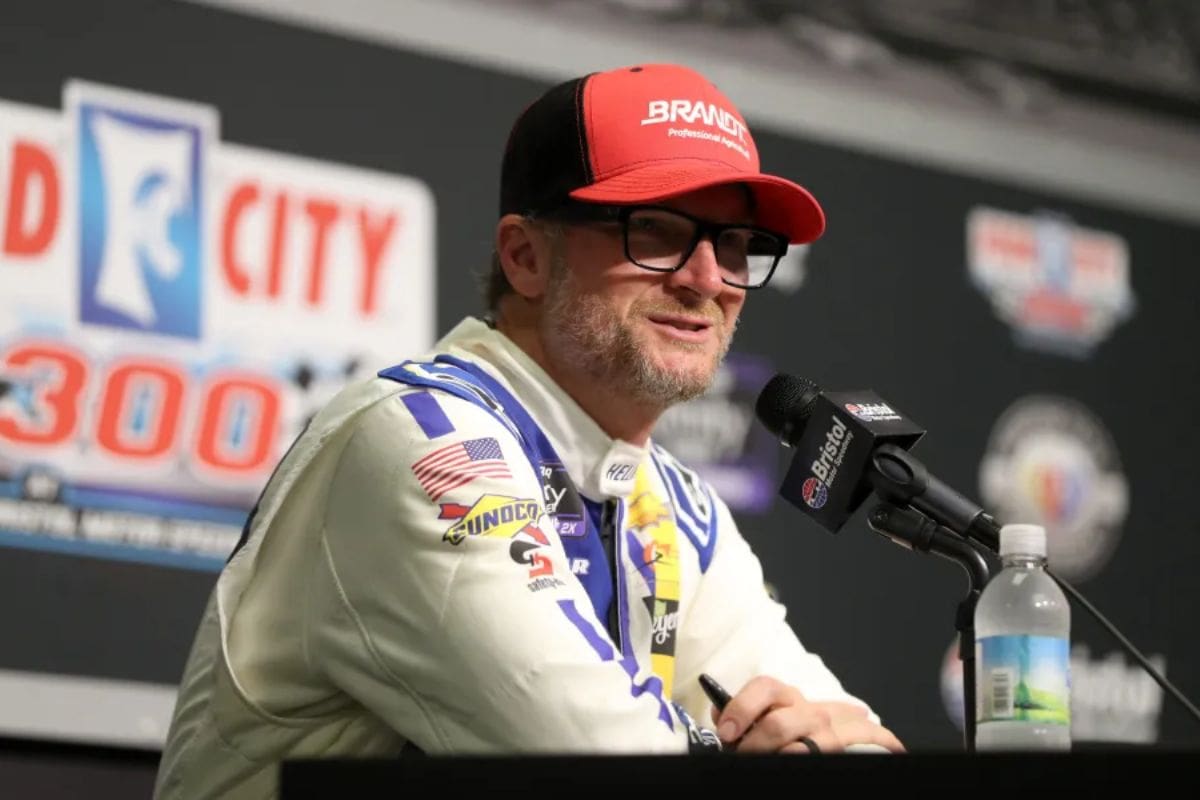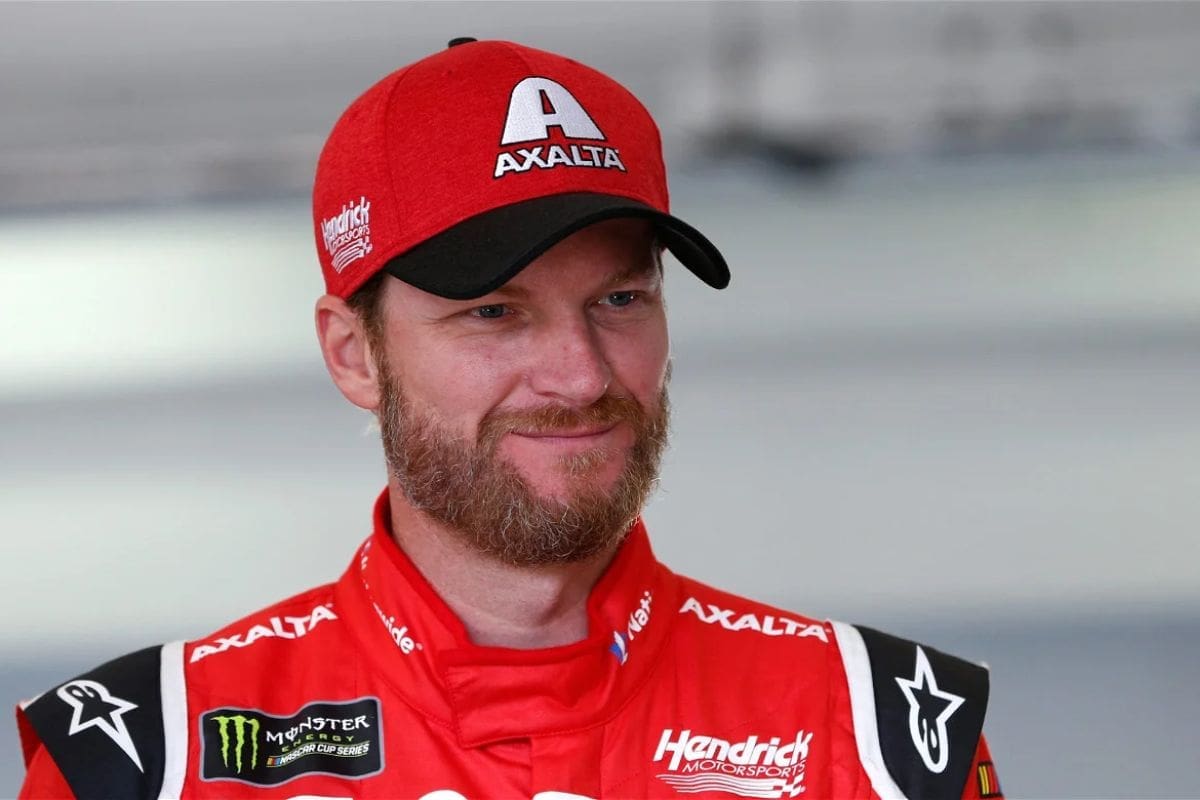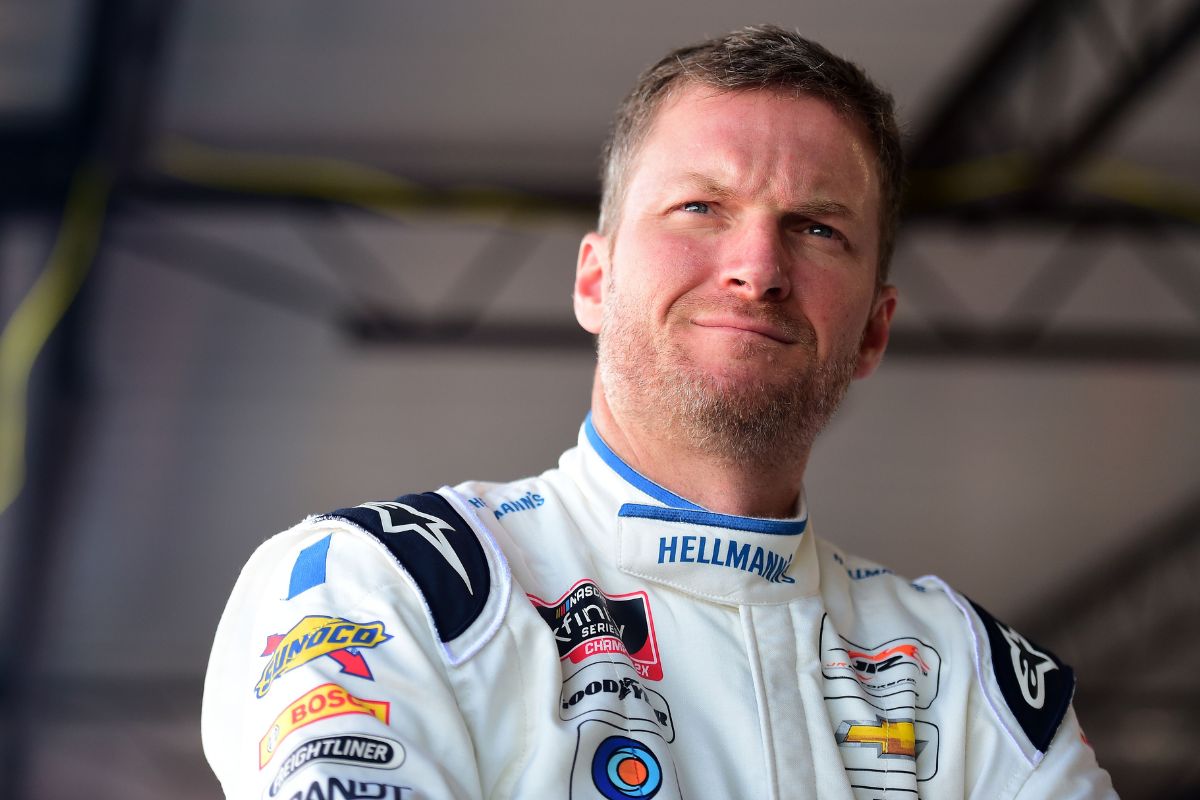Dale Jr’s Brutal Take on NASCAR’s New Monopoly: Dale Earnhardt Jr.‘s critical perspective on NASCAR’s newly introduced monopoly clause raises significant questions about the future competitive landscape of the sport. By potentially enabling a concentration of power among a limited number of elite teams, this policy risks creating barriers that could stifle the ambitions of emerging teams like JR Motorsports aspiring to rise to the Cup Series. Earnhardt Jr.’s worry highlights the balance NASCAR must maintain between promoting financial stability and ensuring equitable opportunities.
Key Highlights
- Dale Earnhardt Jr. criticizes NASCAR’s new charter system for holding power among a few top teams.
- He expresses concerns that the new policies hinder competitive balance within the Cup Series.
- Earnhardt Jr. highlights how the new system creates financial and logistical challenges for teams like JR Motorsports.
- He believes the charter system discourages new entrants by increasing the complexity and cost of joining the Cup Series.
- Earnhardt Jr. sees the updated policies as a barrier to JR Motorsports’ future ambitions in the Cup Series.
NASCAR’s Recent Waiver and Charter Policy Update
NASCAR’s recent waiver granted to Kyle Larson for missing the Coca-Cola 600 highlights significant changes in the sanctioning body’s waiver and charter policy, sparking considerable debate within the racing community. The waiver, intended to accommodate Larson’s unavoidable absence, has nevertheless drawn scrutiny regarding its implications for competitive balance and fairness. This move emphasizes NASCAR’s evolving approach to its waiver system, which aims to maintain the integrity of the competition while ensuring that unforeseen circumstances do not unduly penalize drivers.
The controversy surrounding this waiver is compounded by the recent update to NASCAR’s charter policy. The new clause introduced in the charter policy has elicited a strong response from race teams, who perceive it as a potential threat to their operational autonomy. Critics argue that the updated policy could consolidate power within a smaller group of charter holders, effectively creating a monopolistic environment. This shift has raised concerns about the long-term implications for team diversity and competitive equity within the sport.
The contrast between the waiver granted to Larson and the charter policy update reveals a tension within NASCAR’s regulatory framework. On one hand, the organization seeks to provide flexibility and support for drivers facing extraordinary circumstances. On the other hand, the revised charter policy risks alienating teams and stakeholders who fear a concentration of control and diminished opportunities for smaller or independent teams.
JR Motorsports and Charter Policy
The implications of NASCAR’s recent charter policy update extend to prominent teams like JR Motorsports, where co-owner Dale Earnhardt Jr. has long considered a potential entry into the Cup Series. JR Motorsports, primarily active in the Xfinity Series, has built a reputation for developing talent and achieving competitive success. However, the updated charter policy introduces significant hurdles that may deter their move to the Cup Series.
NASCAR’s charter system, designed to provide teams with a degree of financial stability and guaranteed race entries, now features stricter clauses that could complicate new entrants’ plans. The latest policy revisions include heightened financial commitments and limitations on charter transfers, effectively increasing the barriers to entry for teams like JR Motorsports.
For a team contemplating a shift to the Cup Series, the acquisition of a charter has become a logistical challenge and a substantial financial undertaking. These charters have become highly sought-after assets, with their value appreciating as the number of available charters remains fixed. The revised policy’s restrictive nature means that JR Motorsports would face significant upfront costs and ongoing financial obligations, making the move less financially viable.
Additionally, the policy’s constraints on charter transfers could impede JR Motorsports’ flexibility in negotiating or acquiring a charter. This scenario places the team in a precarious position where market dynamics and the charter system’s rigidity might stymie their Cup Series aspirations.
Dale Earnhardt Jr on Cup Ambition
Dale Earnhardt Jr has publicly managed expectations regarding JR Motorsports’ entry into the Cup Series, citing the prohibitive nature of the revised charter system. The recent adjustments to NASCAR’s charter policy, which now allow the France family and private equity firms to purchase stakes, have solidified the control of existing stakeholders, making it increasingly difficult for new entrants to secure a foothold.
Earnhardt Jr’s comments reveal his practical approach in maneuvering this evolving landscape. ‘We’re out of the charter business right now,’ he stated, acknowledging the immense hurdles posed by the entrenched charter system. His assertion highlights a strategic pause, rather than an abandonment of the ambition to join the Cup Series. He further elaborates that missing the current cycle of charter availability has left JR Motorsports on the sidelines, monitoring future opportunities with cautious optimism.
“We’re out of the charter business right now. I think I know where the charters that are on sale are going. Maybe by the time this is hitting their ways they’ve already been there and everything’s already settled. The sale of a charter…I’ll call it a cycle, right? But we missed the cycle, last cycle. We’ll see what comes down the road.” – JR
This recalibrated stance is a reflection of market dynamics and an acknowledgment of the limitations imposed by the revised policy. By expanding the owners’ control and opening the door for private equity, NASCAR has created a marketplace where charters are both more scarce and more expensive. This inevitably impacts teams like JR Motorsports, who are caught in the crossfire of strategic consolidation and financial intensification.
I caught up with Dale Earnhardt Jr. last month at JR Motorsports fan day. Would that fan day ever include JRM Cup Series drivers? Earnhardt said they didn’t land a charter in the latest cycle and he’s not sure JRM will ever field Cup cars. pic.twitter.com/kziRR4SGZV
— Bob Pockrass (@bobpockrass) June 13, 2024
Earnhardt Jr’s managed expectations for the broader implications of NASCAR’s new charter policy. His perspective provides a critical lens through which the complexities and challenges faced by potential Cup Series entrants can be examined, offering a reflection on the increasingly monopolistic nature of the sport. Therefore, the future of JR Motorsports in the Cup Series remains uncertain, dictated by the evolving economic and regulatory landscape.
JR Motorsports’ Xfinity Success and Cup Challenges
Regularly celebrated for its dominance in the Xfinity Series, JR Motorsports now faces significant hurdles in attempting to break into the Cup Series. With three championships and 58 Series victories to its name, JR Motorsports has established itself as a powerhouse in the Xfinity Series. This success is highlighted by producing rookie champions such as William Byron, Chase Elliott, and Tyler Reddick.
“If I were to ever get involved in the Cup side, it would be like an investment, my personal monetary investment in something current. So I would be open to talking to team owners about putting money into a particular, singular charter.”
“I don’t know if we’ll ever have Junior Motorsports physically owning charters, running a race team, operating every facet of that. I think that that ship has sailed.” – jr
- Financial Investment: Dale Earnhardt Jr. has indicated that any involvement in the Cup Series would require substantial personal financial investment. The cost of securing and maintaining a charter, along with the operational expenses, presents a significant financial barrier.
- Charter System Constraints: NASCAR’s stringent control over the charter system makes it difficult for new teams to enter the Cup Series autonomously. Earnhardt Jr. has expressed skepticism about the feasibility of JR Motorsports owning and operating a Cup team independently, referring to the opportunity as a ‘ship that has sailed.’
- Strategic Partnerships: While Earnhardt Jr. is open to investing in an existing team, this approach would limit JR Motorsports’ control over its operations and strategic decisions. Collaborations with established teams could provide a pathway but would require careful negotiation and alignment of goals.
Kelley Earnhardt Miller’s Perspective
Why does Kelley Earnhardt Miller believe that JR Motorsports’ expansion to the Cup Series is fraught with challenges beyond financial constraints? As the CEO of JR Motorsports, Kelley Earnhardt Miller has a unique perspective, deeply rooted in her extensive experience managing the team and her personal life ambitions. Although financial considerations are a significant factor, Miller’s viewpoint reveals a more subtle set of challenges.
“I’m 50 I don’t want to do this forever. It’s a big investment to figure out how you make that work over the long haul.”
“I think people forget about this. It sounds great to go Cup racing, but there’s a life cycle you’re trying to fit into. I want to relax at some point in my life. I want to have grandkids and go to the cabin and do stuff like that.” – Kelley
In 2022, amidst discussions about JR Motorsports’ potential entry into the Cup Series, Miller openly expressed concerns about the long-term commitment required. At 50 years old, she is mindful of her personal timeline and desires outside the racing world. Miller’s reflections highlight the life cycle of a career in motorsports and the substantial investment of time and energy it demands.
Miller’s concerns are not purely logistical. The existing demands of NASCAR’s charter system complicate the decision-making process for potential new entrants into the Cup Series. The recent tightening of the charter policy has had a significant impact on teams like Stewart-Haas Racing, raising red flags for others contemplating a similar move.
Thus, while the allure of Cup racing is undeniable, Miller’s perspective highlights that the decision involves more than just financial readiness. It requires a careful balance of professional ambition and personal fulfillment, all while navigating an increasingly complex regulatory landscape.
News in Brief: Dale Jr’s Brutal Take on NASCAR’s New Monopoly
The introduction of NASCAR’s new monopoly clause and the modifications to the charter system have raised significant concerns regarding competitive balance and accessibility for emerging teams. Dale Earnhardt Jr’s apprehensions highlight the potential barriers these policies create for teams like JR Motorsports aspiring to join the Cup Series.
The evolving regulatory landscape necessitates a critical examination to guarantee it fosters inclusivity and competitive integrity within the sport, emphasizing the importance of equitable opportunities for all teams.
ALSO READ: Chase Elliott Honors Dale Earnhardt Jr. Legacy at Darlington



